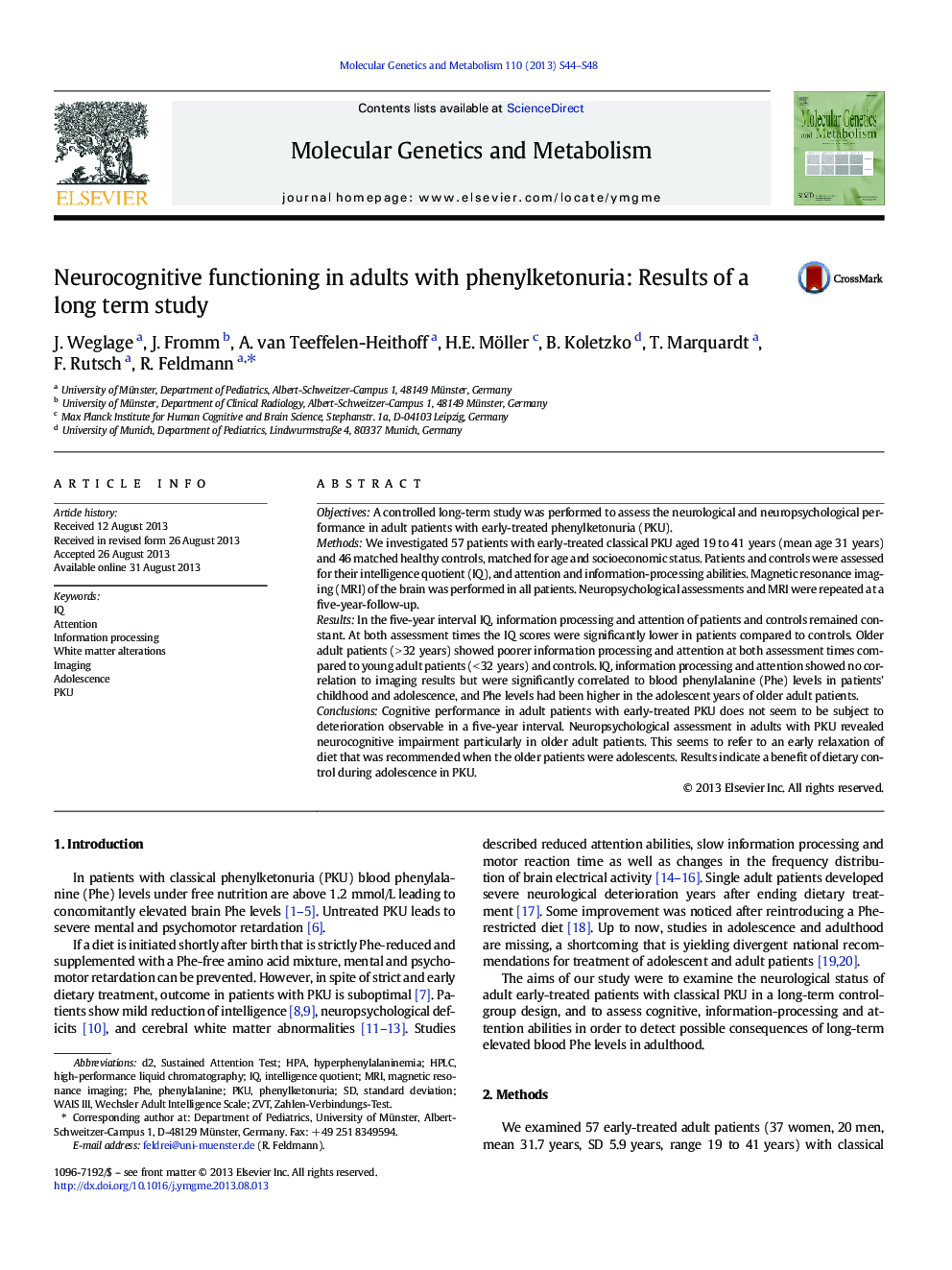| Article ID | Journal | Published Year | Pages | File Type |
|---|---|---|---|---|
| 1998348 | Molecular Genetics and Metabolism | 2013 | 5 Pages |
ObjectivesA controlled long-term study was performed to assess the neurological and neuropsychological performance in adult patients with early-treated phenylketonuria (PKU).MethodsWe investigated 57 patients with early-treated classical PKU aged 19 to 41 years (mean age 31 years) and 46 matched healthy controls, matched for age and socioeconomic status. Patients and controls were assessed for their intelligence quotient (IQ), and attention and information-processing abilities. Magnetic resonance imaging (MRI) of the brain was performed in all patients. Neuropsychological assessments and MRI were repeated at a five-year-follow-up.ResultsIn the five-year interval IQ, information processing and attention of patients and controls remained constant. At both assessment times the IQ scores were significantly lower in patients compared to controls. Older adult patients (> 32 years) showed poorer information processing and attention at both assessment times compared to young adult patients (< 32 years) and controls. IQ, information processing and attention showed no correlation to imaging results but were significantly correlated to blood phenylalanine (Phe) levels in patients' childhood and adolescence, and Phe levels had been higher in the adolescent years of older adult patients.ConclusionsCognitive performance in adult patients with early-treated PKU does not seem to be subject to deterioration observable in a five-year interval. Neuropsychological assessment in adults with PKU revealed neurocognitive impairment particularly in older adult patients. This seems to refer to an early relaxation of diet that was recommended when the older patients were adolescents. Results indicate a benefit of dietary control during adolescence in PKU.
